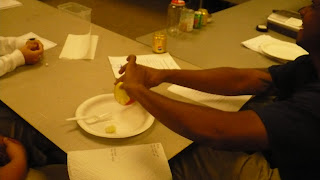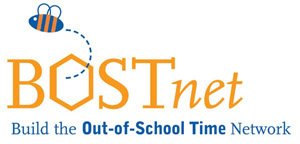 As part of BOSTnet's Summer Series, we reflect on the issues brought up in conversation or as part of the presentation. This meeting covered behavior, however, many aspects of staffing and program needs came up in group discussion. Summer is less then two weeks away. Whether the program is 5 weeks or up to 10 weeks, Summer presents certain challenges as well as opportunities - both for children and youth as well as for the program itself.
As part of BOSTnet's Summer Series, we reflect on the issues brought up in conversation or as part of the presentation. This meeting covered behavior, however, many aspects of staffing and program needs came up in group discussion. Summer is less then two weeks away. Whether the program is 5 weeks or up to 10 weeks, Summer presents certain challenges as well as opportunities - both for children and youth as well as for the program itself.One very common aspect of summer programming is that many programs rely on this period to raise money. Some programs refer to the summer as their "cash cow" since fee-for-service is high and there are more families willing to pay. These sums often cover activities for summer and then work as a bridge fund in autumn until grants, contracts, and payments come in or a fund for the end of the academic year where funds have been spent and resources are few.
So there is an economic aspect of this service where summer subsidizes the academic year. There is another aspect where programs have to ramp up into full time services and work with children or youth who may be part of the academic year or may follow another configuration - such as several sites being consolidated into one site.
 This need for high enrollment as well as the reconfiguration can stress site directors as well as lead to a summer where activities are not always as organized or purposeful as as activities at the same program but during the academic calendar.
This need for high enrollment as well as the reconfiguration can stress site directors as well as lead to a summer where activities are not always as organized or purposeful as as activities at the same program but during the academic calendar.Summer is full of opportunities to grow program funds and deliver more in depth services as there is a longer day. Often this day is full of recreational activities - which are needed. However, there are often summer reading or other summer work that has been assigned by the school for completion by summer programs. Getting children and youth to work on academics was seen as a challenge as well as leading projects that made participants to resist because - and rightly so - they say "we're not in school!"
Summer programs can do learning, however, the group felt that if these activities needed to be fun and engaging - getting in field trips and special visitors. Summer time can be learning time, but a longer day does not mean longer activities. Children and youth still want to go swimming. And rightly so.
One member of the Summer Series group said that themes worked for the summer. These themes could change week by week rather than run for a month. This allows for staff to come up with activities easier as well as focusing the program on short-term goals since every week there is a "final show."
Whether summer time is catching up on school assigned reading, theme projects, or recreation, summer programs have a short span of time with their own challenges. This time is not just an expansion of the afterschool program, but has to look different - even if the staff and students are the same. Perhaps more work needs to be done in focusing this work and pulling out best practices for summer fun and learning.




No comments:
Post a Comment